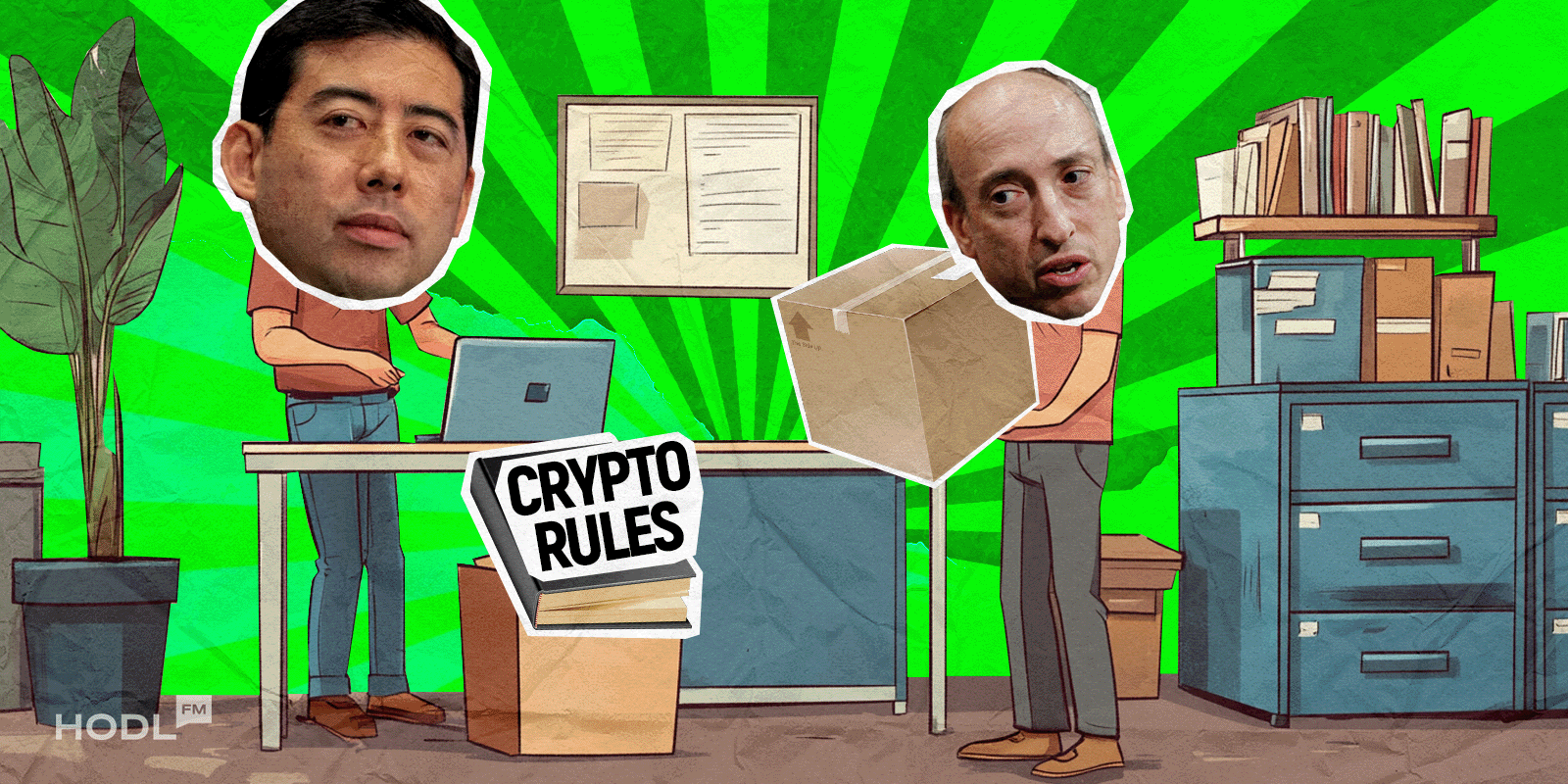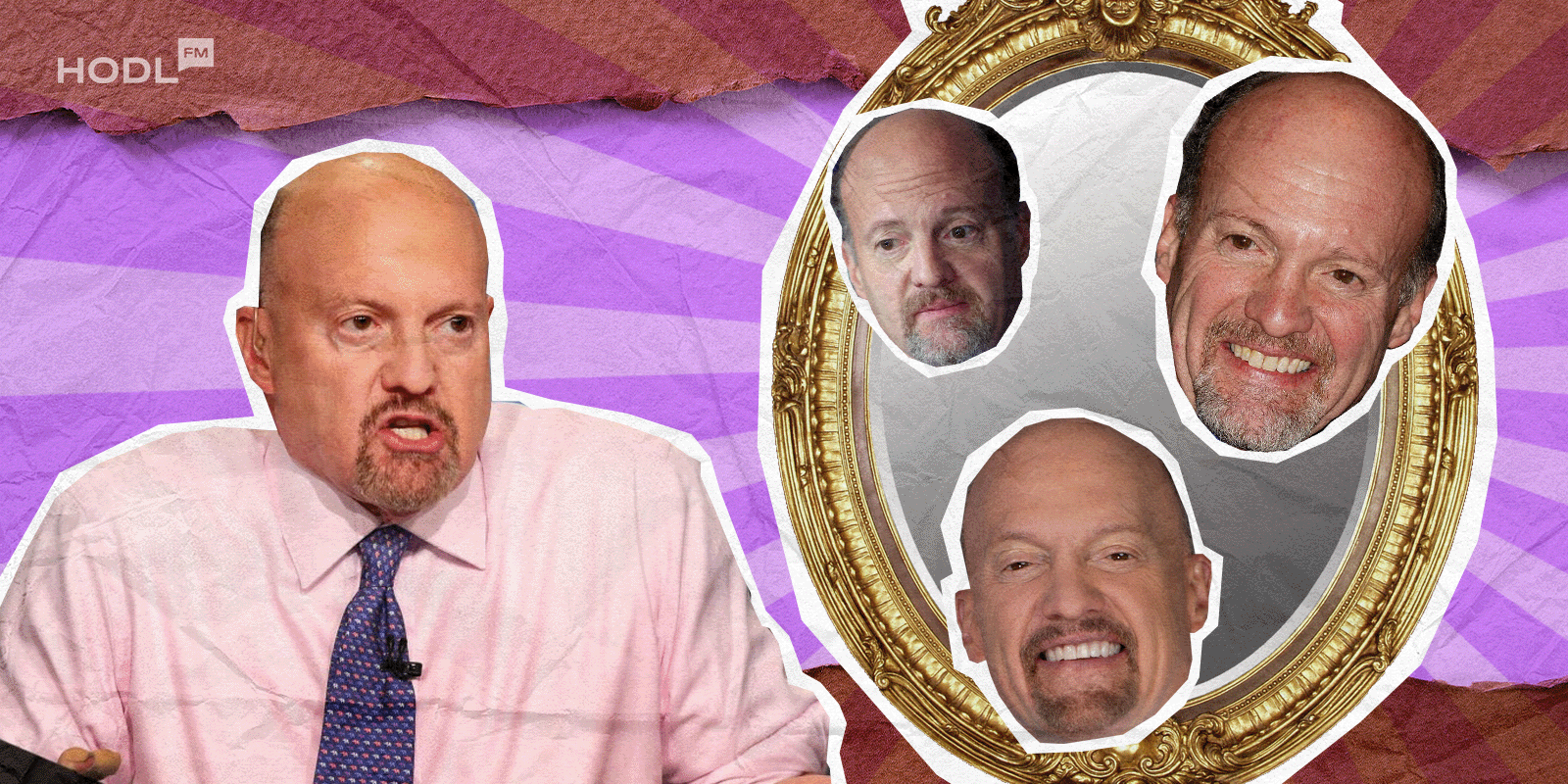If you've ever shown even a slight interest in the stock market or cryptocurrencies, you've probably heard the name Jim Cramer. The emotional host of CNBC’s 'Mad Money', former hedge fund manager, investment book author, and a man whose predictions stir up a lot of buzz, especially regarding crypto. But who is he really — a respected analyst or a showman who catches on to trends for ratings?
A Brief Glance into Cramer's Biography
Jim Cramer's introduction to finance with a degree in government from Harvard University. He later enrolled in Harvard Law School. His first big client was Martin Peretz, editor and owner of ‘The New Republic’. Cramer's success with Peretz's portfolio led to an offer from Goldman Sachs, where he worked for three years before setting out on his own.
In 1987, he founded his hedge fund, ‘Cramer & Co.’, which he would lead until 2001. The firm's success reached new heights when it went public in 1999, during the dot-com boom, and saw its value soar to $1.7 billion. Over this time, the fund managed $450 million in assets and achieved an impressive average return of 24%.
Then together with Peretz he co-founded TheStreet.com in 1996, a financial news site, which further solidified his status as a media personality, and his audience grew. His insights and opinions were in such high demand that by 1997, he launched his own radio show — Jim Cramer's RealMoney.
Cramer himself held a stake worth $225 million. However, the burst of the dot-com bubble led to a loss of wealth, and Cramer's fortune was hit hard. Despite this, he rebounded, and his net worth is still estimated at $150 million.
His knack for making bold market predictions earned him a reputation, but eventually, he left the hedge fund world to focus on financial media. Managing a hedge fund and keeping up with his media ventures became too much, and Cramer left his fund to focus on writing articles and radio shows. These platforms became so popular that just writing and broadcasting weren't enough anymore.
Jim Cramer's big breakthrough came when CNBC gave him his show, Mad Money, in 2005, where his loud, frenetic personality and trademark sound effects turned stock market analysis into pure entertainment.
Cramer's Crypto Predictions: Hype or Sound Analysis?
Cryptocurrency caught Jim Cramer's eye as soon as it started gaining popularity. Since then, his opinion has changed, like the price of Bitcoin in bull and bear markets.
- 2017 – during the previous bull run, Cramer showed some interest in Bitcoin, but didn’t take it seriously.
- 2020 – recommended crypto as an alternative to gold and a potential hedge against inflation.
- 2021 – publicly admitted to buying Bitcoin, only to later reveal that he sold it due to regulatory risks. Then he supported crypto again while the market was growing.
- 2022 – when the market crashed, Cramer became a critic of digital assets.
- 2023 – is positive again.
- 2024 – finally acknowledged that Bitcoin deserves a spot in an investment portfolio, highlighting its potential as a store of value.
- 2025 – said he preferred owning Bitcoin directly rather than through companies investing in crypto, like Strategy. Cramer went on to call Bitcoin “a great thing for your portfolio.”
How Accurate Are His Predictions?
Jim Cramer's reputation in the financial world is, well, a bit of a mixed bag. His forecasts often come under fire for being wildly off the mark. Some of his most infamous missteps include recommending the purchase of Cathie Wood’s ARKK ETF just before it lost about half its value. Then, he suggested shorting ARKK ETF a few days before it surged by over 13%.
One of the most famous jokes about Jim Cramer is the “reverse indicator” phenomenon. The idea here is that his predictions often end up being the opposite of reality. If he says a stock is doomed, it’s likely to rise. If he thinks a company is promising, it’s probably about to crash.
This phenomenon was so strong that in 2022, an Inverse Cramer ETF was created, designed to make opposite bets on his predictions. However, it didn’t last long, closing down in early 2024.
In the crypto community, his “predictions” are often met with a healthy dose of irony: if Cramer says Bitcoin is dead, it’s probably time to buy. For instance, in January 2024, Cramer predicted that Bitcoin had reached its peak and urged investors to sell. Since then, Bitcoin has skyrocketed by over 100%, completely disproving his forecast.
JIM CRAMER ALERT🚨🚨🚨:
— Swan (@Swan) January 9, 2024
“I think Bitcoin’s topping out.”#Bitcoin🚀🚀🚀 pic.twitter.com/mt8TwwtPDL
His latest statements suggest that he now sees Bitcoin as a tool for protecting against government debt, but he still advises investors to keep a mix of crypto and stocks in their portfolios.
Cramer Where the Hype Is
In recent years, Cramer has often weighed in on tech trends, including AI and quantum computing. Not long ago, he warned investors about a potential bubble in quantum technologies, stating that companies in this sector are still far from being genuinely profitable. But, funny enough, he had previously stoked interest in the very same stocks.
The same goes for crypto. Despite his hedge fund background, Cramer seems more like a media personality than a serious analyst. His job isn’t necessarily about making accurate predictions, but about creating buzz, engaging the audience, and keeping the ratings up for his CNBC show. After all, he does rake in a cool $5 million a year as a host.
Should You Follow His Advice?
Cramer is a blend of journalist, entertainer, and investor. He knows how to jump on trends, but his advice should be taken with a pinch of salt. In crypto, his stance fluctuates depending on market conditions, and his public recommendations often serve as an indicator that the market is either overheated or on the verge of a turnaround.
So, listening to Cramer? Sure. Blindly following his predictions? That’s a risky strategy, especially when some people are making money by doing the exact opposite. But don’t dismiss everything he says as empty chatter or think of him as a financial clown—he’s earned his modest $150 million after all.

Disclaimer: All materials on this site are for informational purposes only. None of the material should be interpreted as investment advice. Please note that despite the nature of much of the material created and hosted on this website, HODL FM is not a financial reference resource and the opinions of authors and other contributors are their own and should not be taken as financial advice. If you require advice of this sort, HODL FM strongly recommends contacting a qualified industry professional.





